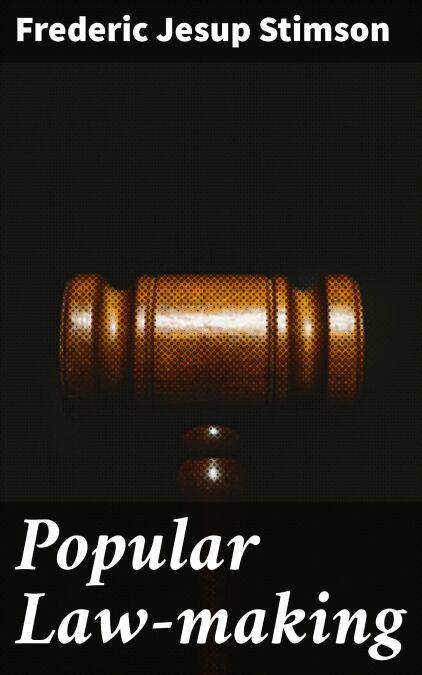
- Afhalen na 1 uur in een winkel met voorraad
- Gratis thuislevering in België vanaf € 30
- Ruim aanbod met 7 miljoen producten
- Afhalen na 1 uur in een winkel met voorraad
- Gratis thuislevering in België vanaf € 30
- Ruim aanbod met 7 miljoen producten
Zoeken
Popular Law-making E-BOOK
A study of the origin, history, and present tendencies of law-making by statute
Frederic Jesup Stimson
E-book | Engels
€ 0,49
Omschrijving
In "Popular Law-making," Frederic Jesup Stimson presents a meticulous critique of the contemporary legal system and explores the democratization of legislative processes in early 20th-century America. Stimson's prose is characterized by clarity and an engaging narrative style, enhanced by extensive historical context and thorough legal analysis. The book argues for greater public participation and accountability in law-making, reflecting progressive era sentiments about reform and civic engagement. His keen examination of case studies illustrates the implications of popular governance on legislation, revealing the tensions between established legal frameworks and emergent democratic ideals. Frederic Jesup Stimson was not only a prominent jurist and legal scholar but also a recognized novelist and public intellectual. His experiences as a lawyer and diplomat shaped his understanding of the interplay between law and society, prompting his advocacy for reform in legal practice. Stimson's diverse background enriched his insights on popular sovereignty, making him a leading figure among legal progressives advocating for reforms that align with democratic principles. For readers interested in the intersections of law, democracy, and social justice, "Popular Law-making" is an essential text. Stimson'Äôs insightful arguments encourage a re-evaluation of current legislative practices and invite readers to consider the importance of civic involvement in shaping the laws that govern society. This work remains relevant as it speaks to ongoing debates about accessibility and participation in democratic institutions.
Specificaties
Betrokkenen
- Auteur(s):
- Uitgeverij:
Inhoud
- Aantal bladzijden:
- 376
- Taal:
- Engels
Eigenschappen
- Productcode (EAN):
- 4057664586902
- Verschijningsdatum:
- 3/12/2019
- Uitvoering:
- E-book
- Beveiligd met:
- Digital watermarking
- Formaat:
- ePub

Alleen bij Standaard Boekhandel
Beoordelingen
We publiceren alleen reviews die voldoen aan de voorwaarden voor reviews. Bekijk onze voorwaarden voor reviews.







